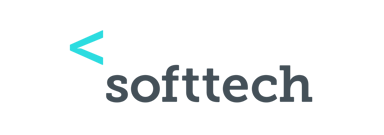Technical Interview
Technical interviews generally challenge interviewees with complicated problems, which analyze and test their abilities for critical thinking and skills in problem solving.
Not all technical interviews indeed employ technical problems to evaluate the skills of candidates. Besides, interviewers can learn more about how these candidates' capabilities will support them in the job they are interviewing for.
What Is a Technical Interview?
A technical interview is one of the job interview types generally employed by employers to gauge the technical skills and knowledge of candidates in fields such as science, engineering, information technology (IT), or any role that calls for a certain set of technical proficiencies. Thanks to these interviews, organizations can evaluate the interviewees' problem-solving skills, critical thinking skills, and technical skills.
In technical interviews, it is common for candidates to be presented with problems such as technical assessment problems and numerical reasoning problems to test their ability to solve problems and produce solutions. Hiring managers can choose to have these interviews via video call, telephone or in-person.
What Is the Purpose of a Technical Interview?
Organizations gauge interviewees' ability to think creatively and innovatively in technical interviews when solving technical problems. Successful completion of the technical interviews indicates that the qualifications of candidates match the job requirements. Since the technical interviews evaluate interviewees' approaches to problem solving, interviewers might utilize some technical problems that candidates have to solve in the interviews.
Interviewers can evaluate how candidates approach problems, break them down into parts, and eventually solve them. Through interviews, while getting the true answer can be advantageous, interviewers generally focus on the methodology of candidates in solving problems. In other words, they might care more about that than the right answer.
What Are the Benefits of Conducting a Technical Interview during the Hiring Process?
Technical interviews help to gauge whether candidates have the necessary equipment and knowledge for the role. In tech interviews, organizations evaluate interviewees on important aspects such as critical thinking, problem solving, and technical skills. In this respect, conducting technical interviews has many benefits during the hiring processes conducted by professionals such as human resources representatives and hiring managers, as follows:
Improving Efficiency
Hiring managers have many duties that generally involve conducting interviews. Thanks to conducting detailed technical interviews, they can focus exclusively on candidates who have the necessary skills related to the role to succeed. Thus, it might lead to enhancing time management and improving efficiency. That also speeds up the hiring process, supporting hiring managers to make a competitive offer to qualified candidates faster.
Increasing Quality of Hires
The evaluations in the technical interviews can support hiring managers in selecting the most suitable candidate possible. That is likely to result in improved quality of hire. Team managers can convey to HR what kind of skills they require. The testing in the tech interviews can help filter interviewees according to these requirements. These candidates' skills demonstrations can help organizations save resources by identifying initial compatibility.
Ensuring Correct Comparison
Since all interviewees get the same skill assessments in a technical interview, the standardized results are mostly more trusted than traditional interviews. That can assist hiring managers make more correct comparisons of candidates' qualifications and can make more conscious decisions about hiring. Thanks to this equality in the hiring process, bias can be minimized when choosing candidates.
How to Conduct a Technical Interview?
Understanding the components of a successful technical interview helps professionals identify which questions and assessments these interviews should involve. Here are the steps to conduct a good technical interview:
1. Understand the Role Properly and Customize the Questions
Before the technical interview, professionals should ensure that they understand the position's role and responsibilities correctly to convey accurate information to interviewees. Utilizing the job description is an excellent way to customize technical interview questions and grasp the qualities of the most suitable candidate. Encouraging advancement may lead the candidates who will be a long-term asset to the organization.
During technical interviews, although the focus is generally on the hard skills required for success, assessing the soft skills relevant to the role is critical. For this reason, professionals should prepare a few questions to ask during a tech interview to assess soft skills.
2. Evaluating All Hiring Documents Provided by Candidates
Examining the hiring documents of all candidates, such as resumes and cover letters, allows organizations to obtain more comprehensive information about their skills and experience in the technical field. It is also a valuable source of information on how candidates have utilized these skills in the past, and it can be one of the tech interview questions to ask. In summary, looking at each document and taking notes will be helpful in the interview.
3. Having a Phone or Video Interview
After evaluating the candidates' resumes, professionals should assess those who are impressive and contact these candidates for a phone or video interview. Technical phone or video interviews usually take little time, allowing hiring managers to understand if the interviewees are willing to move on to the subsequent phases.
It is a good idea for professionals to ask general questions during phone or video interviews to learn about some of the candidates' skills and work experience. A significant portion of this information may be in previously reviewed resumes. Still, such interviews allow candidates to explain many details more comprehensively, including that information. That is very important for both the organizations and the interviewees.
Meanwhile, it may be helpful for professionals to take some notes about the interviewees if they want to invite the candidates to an in-person meeting or need to check some information about them in the future.
4. Providing Candidates with a Remote Coding Assessment
After professionals determine the most suitable interviewees during phone or video interviews, they can provide them with a remote coding assignment to test and analyze their technical abilities. It is possible to provide simple coding tasks to candidates through phone, email, or video call options and request this by a specific deadline.
Professionals should carefully examine completed tasks and determine which candidates produce accurate, effective, and creative results after finishing them. Consciously determining that can ensure the right potential candidates are brought to the company.
5. Preparing Questions to Ask during Technical Interview
Having sufficient information about the skills, education, and work experience of the candidates organizations will be dealing with is crucial for preparing questions for an interview. Interviewers may ask questions about these candidates’ particular technical capabilities and background. It will also be helpful for the interviewers to take notes of these questions for both themselves and the interviewees.
6. Organizing the On-Site Interview
Candidates who have successfully completed steps such as phone interview and coding assignment should be selected, and an in-person interview offer should be sent to them. In addition, interviewers may also ask candidates to perform a whiteboard challenge in an office environment. This challenge usually involves candidates writing, completing, or fixing a code on the whiteboard in front of the interviewers during the interview.
Once candidates have completed this process, interviewers can continue asking questions from their lists. These should include various topics, such as general, skills and qualifications, and in-depth questions.
7. Informing Candidates of Interview Decisions
After the interview, organizations may prefer to inform candidates of interview decisions when the candidates expect to hear back from them. For instance, they can inform the candidates of decisions within a week.
Doing this not only helps the candidates. It also positively affects employer branding, which is highly important for organizations today. Even if the feedback is negative, employer branding will inevitably be positively impacted because a company in which candidates can actively communicate values communication.
Conclusion
In this content, you have discovered many topics such as the definition of technical interview, technical interview meaning, and purpose of technical interview. You can benefit from this content as a comprehensive guide, not only as an HR professional conducting technical interviews but also as someone interested in HR topics.
The topic of technical interviews is essential, and you have to know that. Nevertheless, there are many subjects that you need to learn to improve your career and also your company's growth. That is why you can look at Hirex to discover more content to benefit your business life!
Contents
Get a demo
- Quickly find top candidates with smart application management
- Improve team collaboration using built-in communication and workflows
- Offer a smooth candidate experience to strengthen your employer brand
- Count on 24/7 support for a hassle-free hiring process
- Quickly find top candidates with smart application management
- Improve team collaboration using built-in communication and workflows
- Offer a smooth candidate experience to strengthen your employer brand
- Count on 24/7 support for a hassle-free hiring process
"We truly felt the speed difference. Everything was smoother, and candidate feedback was much more positive. It made our jobs easier."

Trusted by 100+ teams
Get Informed,F.A.Q.
Revolutionize your hiring process with our transformative Applicant Tracking System (ATS.)
Suggested keywords
What is Cultural Fit?
Let's talk numbers - 89% of employers put cultural fit at the top of their hiring checklist. Pretty huge. But wait a second... what exactly does cultural fit mean in today's fast-moving workplace?The ...
Employee NPS Benchmarks
An Employee NPS benchmark is basically a way to see how your company’s employee satisfaction stacks up against others. It helps turn your eNPS score into something useful by giving it context. 📌You'r...
Salary Benchmarking
Salary benchmarking is basically figuring out if what you're paying your team makes sense compared to what others are offering for similar roles. It’s like checking the going rate before you buy somet...















